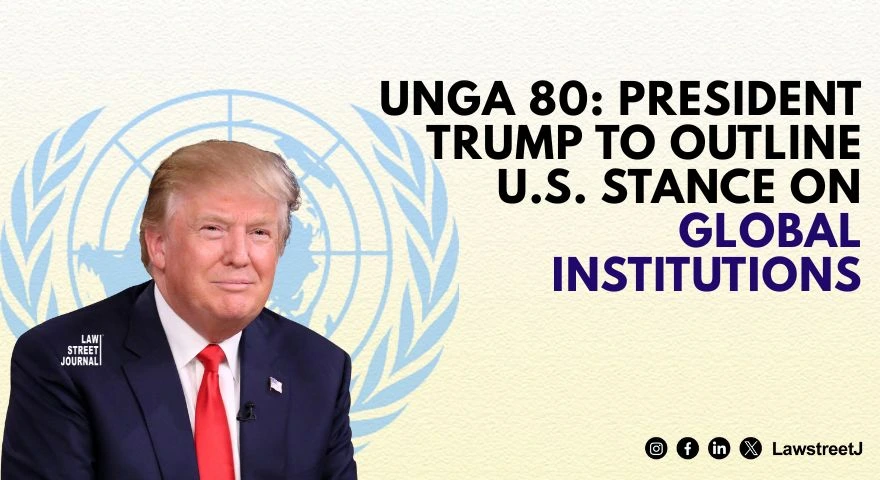New York: The 80th session of the United Nations General Assembly (UNGA) opened this week with heightened anticipation for U.S. President Donald J. Trump’s address, scheduled for September 24. The speech is expected to reaffirm the administration’s position on multilateral institutions, international law, and the balance between sovereignty and global cooperation.
Trump’s Policy Emphasis: Sovereignty and Independence
According to White House officials, the President’s remarks will underscore national sovereignty, economic independence, and U.S. obligations under international law. This builds on a series of executive measures taken since January 2025, signaling a recalibrated U.S. approach to its international commitments.
Recent Executive and Policy Measures
Several directives issued in 2025 highlight Washington’s shifting engagement with global institutions:
- UN Funding Cuts: The FY2026 budget proposes a 42% reduction in U.S. contributions to UN peacekeeping and specialized agencies, citing Section 307 of the Foreign Assistance Act of 1961.
- Paris Climate Accord Withdrawal: On February 2, 2025, the U.S. formally withdrew from the Paris Agreement under Article 28, pursuant to the Presidential Climate Sovereignty Directive.
- NATO Participation Limits: In March 2025, a memorandum to Congress under the War Powers Resolution curtailed U.S. troop participation in NATO exercises unless directly authorized by the President.
- Trade Reviews: The Office of the U.S. Trade Representative invoked Section 301 of the Trade Act of 1974 to reassess over 15 bilateral trade agreements, with tariff revisions pending.
Legal Framework and Constitutional Context
The administration’s measures remain subject to established U.S. legal and constitutional interpretations:
- Treaty Withdrawal: The unresolved constitutional question from Goldwater v. Carter (1979) remains central, as courts have avoided definitive rulings on unilateral treaty termination by the Executive.
- UN Charter Commitments: Despite funding cuts, the U.S. remains bound by the Charter, particularly Articles 5 and 6 concerning suspension and participation.
- Domestic Enforcement: In Medellín v. Texas (2008), the Supreme Court affirmed that treaties are not self-executing without enabling legislation, limiting automatic domestic enforcement.
- Refugee & Human Rights Law: While statutes such as the Refugee Act of 1980 and the Immigration and Nationality Act remain intact, executive discretion continues to shape refugee resettlement and council participation.
Global and Domestic Reactions
The U.S. position has already triggered responses on both diplomatic and legislative fronts:
- European Union: On September 20, the EU issued a communiqué urging Washington to uphold its obligations under the UN Charter.
- China & Russia: Both nations have deepened coordination through BRICS and the Shanghai Cooperation Organization, signaling alternative power blocs in response to U.S. retrenchment.
- U.S. Congress: The Senate Foreign Relations Committee has scheduled hearings to review the administration’s actions, particularly on treaty withdrawals and funding reductions.
International Legal Framework
Even amid U.S. recalibration, the Vienna Convention on the Law of Treaties (1969) provides the governing framework for treaty withdrawal and amendment. While the U.S. has signed but not ratified the Convention, customary international law principles embedded within it continue to shape state practice.






